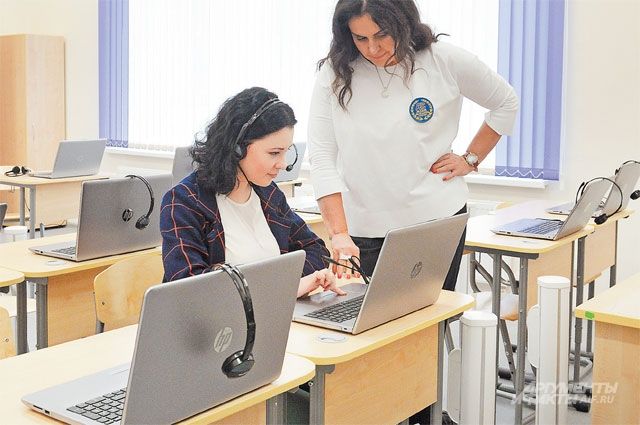History National projects
A large-scale All-Russian educational project in the field of information technology is organized in the country for the fourth consecutive year. Thanks to him, millions of schoolchildren in grades 1 to 11 have already been able to befriend artificial intelligence and gain knowledge from experts at leading technology companies in the world. country.
Our associations with the word “ number '' have changed dramatically in recent decades. If previously it was about arithmetic, today the first and truest association with this word is associated with information technology.There is nowhere without number. All people, young and old, understand this. By the way, professionals in the digital industry are aware of this, who are actively working to improve schoolchildren's computer literacy and create new staff for the digital economy. The initiators of the lesson in numbers & mdash; Ministry of Education of Russia, Ministry of Digital Industry of Russia and ANO “ Digital Economy '' & mdash; The objectives of the project are the development of digital skills in schoolchildren and early career guidance in areas related to computer science and programming.
“ Last academic year '' bdquo; Numbers lesson & ldquo; covered more than half of Russian schoolchildren. Over the past three years, children, parents and teachers have turned to the lessons available on the project's website more than 41 million times. This year, the project, which just started on October 5, already has more than 2.6 million passes. All simulators are available for teachers and students all year round, they can be easily integrated into the program & # 39; & # 39 ;, & mdash; declares Yulia Goryachkina, Deputy Managing Director of ANO Digital Economy in the Directorate of Human Resources for the Digital Economy .
Despite the fact that the 'Lesson Numbers' the experts have been teaching children since the fourth grade already, the interest in the project is not waning. And this is not surprising, because the program for this academic year is very interesting, and the knowledge gained can be immediately applied in practice. So, in October, schoolchildren discovered the possibilities of artificial intelligence in education, and in November, they will discover the development of games. Next January they will learn about computer security, in February they will learn about artificial intelligence in music, and in April they will learn how to develop applications quickly.
Course materials, accessible on the project site, cover a wide range of topics: algorithms, coding, team development, internet security, project management, artificial intelligence, machine learning, personal assistants, networks and technologies. cloud, big data, unmanned transport, neural networks and communications, digital privacy and more.
'It's learning and playing'
In October, the children had the opportunity to learn more about the concept of 'artificial intelligence', the basics of its work, and educate themselves on the possibilities of its practical use on the example of the teaching profession. Using the game simulator, the school children were able to create a smart assistant for the math teacher. Of course, it was not a robot, but a clever algorithm capable of taking apart even the most unreadable handwriting, finding errors in the handwriting, analyzing them and even giving feedback. good advice to the teacher. & Nbsp;
Most of the participants in the project's October lesson were from the capital and the Moscow region (102,094). The leaders were also the Samara region (38,256), the Belgorod region (37,903), the Novosibirsk region (35,794), St. Petersburg and the Leningrad region (34,130).
At the end of the action in each Federal District will be selected one of the most active regions, and its best representatives & mdash; project participants & mdash; will be rewarded with memorable prizes from the organizers. The Digital Lesson Project, which covered all 85 regions of Russia, is being implemented in support of the Federal Human Resources Project for the Digital Economy. & Nbsp;
“ You can study on your own according to the developed curriculum, but it is better to do it with the class or even the whole school. & bdquo; Course numbers & ldquo; offers children and educators across the country the opportunity to harness their digital knowledge and increase their interest in modern technology. We hope that, through this project, schoolchildren will be able to deepen their knowledge of artificial intelligence and eventually become professionals in this field & # 39; & # 39 ;, & mdash; comments Pyotr Polozhevets, Executive Director of the Sberbank Charitable Foundation “ Contribution to the future. & # 39; & # 39;
parents and teachers. The experience and results of the pilot project will feed into the All-Russian project, which will start next year & # 39; & # 39 ;, & mdash; said Deputy Prime Minister Dmitry Chernychenko .

